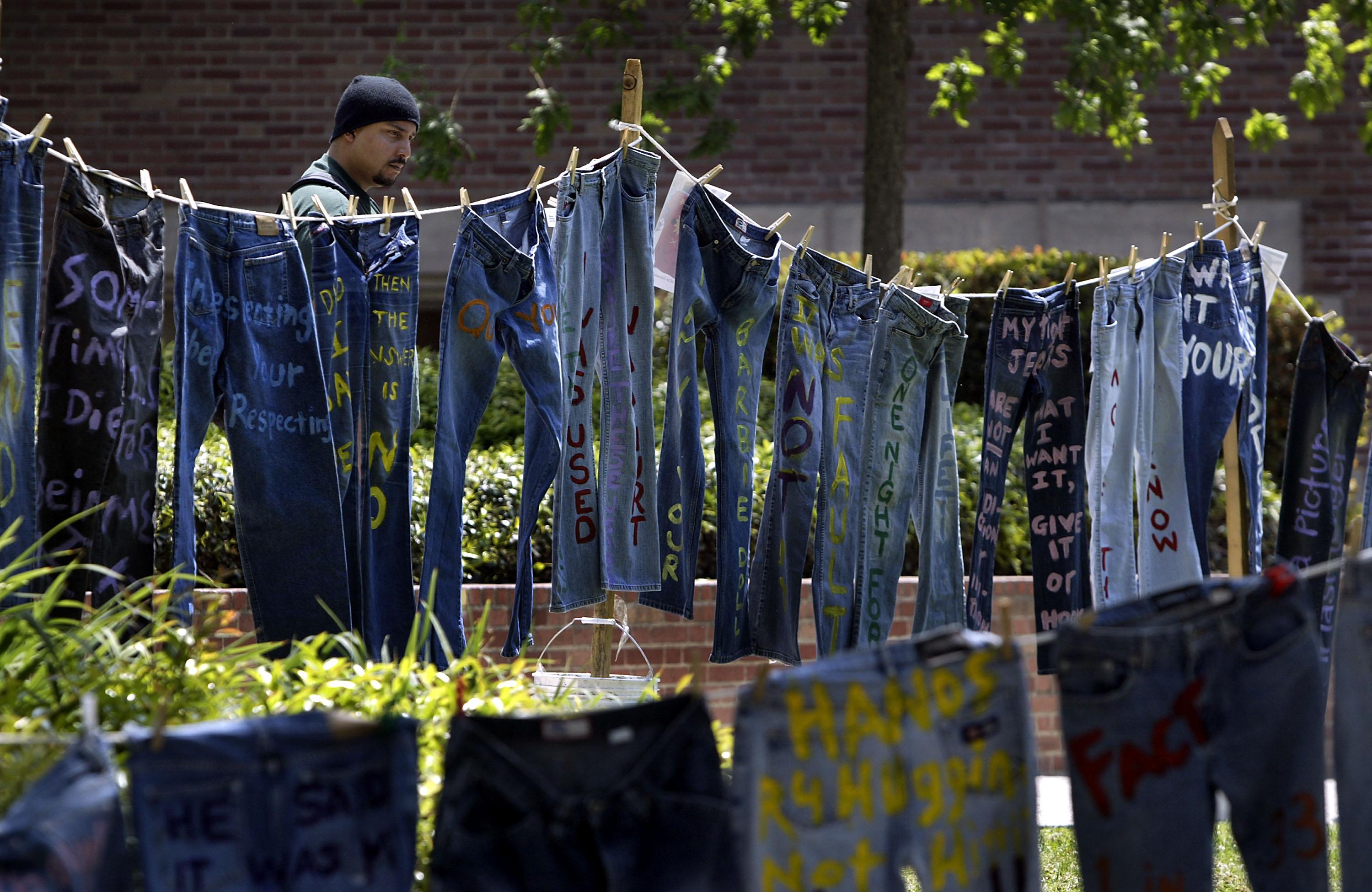As Media Matters reported last week, the National Review Online has become the Web’s new shower nozzle for rape denial and victim-blaming. It has poured out a sludge of toxic stories recently, including this one on how women could stop campus rape “overnight” by not getting drunk, confused, and into bed with men. And this one on how feminists “really created rape culture” by fostering “ a rough world of sexual insensitivity and sometimes even brutality.” And this one decrying the “lynch mob politics” that prevail when colleges try to prosecute assault allegations internally, instead of tossing them to the courts. So the National Review looked deep inside its soul Monday and decided to rectify things…by running with its most wildly offensive premise yet!
The rape epidemic is a myth, writes A.J. Delgado. It’s a conspiracy by the Left to brainwash young women into ruining men’s lives, out of the rubble of which will rise the glorious avenging spirit of Matriarchy and the bold hopes of a triumphant new Womynkind. Here is how we’re doing it.
1. We are pressuring college administrators to “[err] on the side of caution and of extreme feminism” by declaring everything rape.
A consensual drunken tryst? Rape. A one-night-stand regretted in the morning? Rape. A parking ticket? Rape. It’s not that rape has been underreported in the past for a variety of reasons—including the kind of reflexive skepticism and judgment on display in Delgado’s article. Educators have simply picked up their rape-hammers and decided to make all of creation their nail.
2. We are teaching young women themselves that anything can count as rape, and encouraging them to “cry rape” when they regret a sexual encounter.
“For every legitimate, actual rape claim there may be another that was not: a girl who cried rape,” Delgado writes, citing impressive statistics about false accusations that are actually just links to nine instances over several years, compared to the roughly 300,000 women who the Justice Department estimates are raped per annum. (That’s the lowball number.) (Also one of the links goes to a blog post about NSA leaks.)
Figures aside, Delgado presents the irrefutable anecdote of her friend Amy, who had a “wild night” with a guy named Steve and then felt ashamed when he didn’t follow up.
The following morning, Amy called me: “You know, I’ve been thinking. I had a lot to drink the other night, right? I mean, you saw how drunk I was.” I told Amy she actually wasn’t very drunk, as we’d not been at the club long before she left with Steve. Amy insisted: “No, trust me — I was really drunk. Like, I don’t even remember going home with him. I know it’s going to sound crazy but — I think he raped me.”
My phone nearly dropped. I told Amy to come over immediately. We talked it through. I was determined to support her if she had been violated in any way, even suggesting we go to the hospital to have her examined, but the more I spoke to her, the more it became clear this was a case not of rape but of “regrettable sex.” Amy felt scorned, used, and hurt — convincing herself she had been raped was a way of saving her dignity and avoiding the hurtful reality.
Case closed. Amy was willing to accuse a fellow student of a terrible crime to save face, so all women are. (Note: While Amy came close to ruining Steve’s life, she did not finally report him to the police.) “To the extent some in our society remain skeptical of rape claims,” Delgado concludes, “women themselves bear a share of the blame.” Especially women named A.J. Delgado.
Update, May 21, 2014: Other sources cite a smaller number of women raped per year. That number, 237,868, refers to women over the age of 12. This post uses data that refers to all women.
